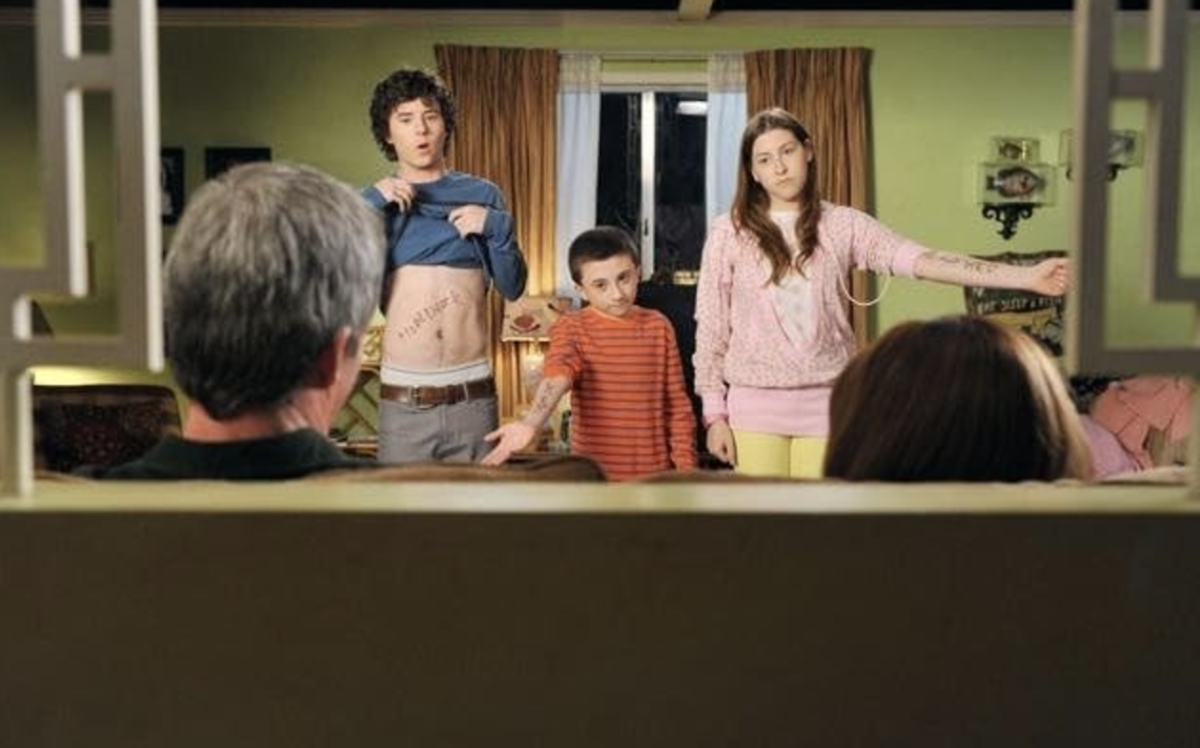
The intricacies of the Ewing family’s legendary wheeling and dealing in Dallas, Tex., are in full force throughout the second season of “Dallas.”
Almost 20 years after the last episode of the original series, the Ewing clan returned to the small screen in 2012 to mix up a new generation in the titular city and fight over the family ranch, Southfork. While filled with dramatic events, typical of those in soap operas, this season was also marked by on and off-screen tragedies.
With the passing of Larry Hagman during the filming of the second season, the cast and writers of “Dallas” were presented with the challenge of losing an iconic and influential character. Hagman played J.R. Ewing, the shrewd and conniving eldest Ewing brother. An anchor of the show from the very first episode back in 1978, Hagman so fully encompassed the role of J.R., that the closing of the season was clearly missing the calculating patriarch.
What the writers and cast didn’t do was panic. Instead, this untimely event gave the writers an opportunity for a death in the show that would not only be indisputably final, but surprisingly touching. The death of J.R. highlights a throwback to the original series, ending the episode when J.R. is last shown with a cliff hanger asking the audience, “Who killed J.R.?” From the growing tensions between the Barnes and Ewing families to Ann Ewing (Brenda Strong) reconnecting with her long-lost daughter, each hour-long episode had so much going on that it was easy to get overwhelmed. The many plot lines and intrigues that permeated the series were well managed but elaborate. It was important to keep up or else piecing the next episode was difficult.
Ann’s search and eventual discovery of Emma Ryland, her daughter with a taste for pain-killers, was central to the entire season. As Bobby Ewing’s second wife, she hid the existence of her daughter from him because she was ashamed of her past self. Emma was kidnapped when Ann, then with her former husband Harris Ryland (Mitch Pileggi), left Emma alone at a fairground for a few moments. Later, it was discovered that it was Harris himself, along with his mother, who kidnapped their child.
The drama followed the Ewing clan through many tumultuous episodes and dealt with numerous issues surrounding the family. Trust, loyalty and the Ewings’ affinity for retaliation were all tested as Harris’ manipulative nature was introduced to Southfork. The entire plot line regarding Emma, played by an impassioned Emma Bell, was well executed, seamlessly creating a lasting and believable tension between Harris and the Ewings.
Some casts have the misfortune to have a character who is infuriating in every way, but “Dallas” has been blessed with three.
The Ramos siblings and Christopher Ewing, despite their good intentions, have the uncanny knack of making the viewer want to throw heavy objects at the television. Christopher (Jesse Metcalfe), the adopted son of Bobby, is engaged to Elena Ramos (Jordana Brewster), the daughter of the Ewings’ cook. Their romance, which was a main focus of the first season of “Dallas,” is thrown in John Ross Ewing’s face with an unfounded entitlement. The lingering tension between Christopher and John Ross was the only benefit, and made for constant plot twists.
Drew (Kuno Becker), the other Ramos sibling, tripped over his own feet at every turn. If there was ever a character so adept at making mistakes, they should be sent immediately to Southfork so that Drew has a chance to be the second most useless human in Dallas. His vital role in framing Harris in the season finale was not quite enough to compensate for blowing up the Ewing oil rig and endangering the lives of his friends and family.
The actors aren’t at fault for the insufferable roles. They do an excellent job of playing characters more detestable than the actual “villains” the fans are supposed to hate. The antagonists in “Dallas” have understandable motives, and at times are even sympathetic; Harris has mommy issues and Cliff Barnes has an ongoing competition with the Ewings. It’s possible that the actors have such distaste for their characters’ behaviors that the audience can’t help but share the feeling.
Other characters are spot on. Though J.R. Ewing died early in the season, he remained an integral and dominant character even from the afterlife. He orchestrated an intricate plan to frame Cliff Barnes as his murderer as his last act. Though J.R. was not on screen for his last masterpiece, he stayed in character throughout. John Ross, his son, through betrayals and his father’s death, is turning into his predecessor. He never broke character, conniving and sneaky to the last minute of the finale.
Bobby Ewing, who doesn’t believe in his late brother’s behavior comes to realize that sometimes the only way to keep the family and the business together is by blackmail and a lot of scheming. His revelation and temporary change in ethics made for a fun twist to the generally vanilla character.
After a season packed with murder, deceit and excessive wealth, the Ewings must recuperate from the finality of J.R.’s death. The actors have a big spot to fill with his absence, and the third season will struggle to shine without the infamous J.R.
Araz Havan can be reached at [email protected].



















Nairi Havan • Apr 23, 2013 at 10:20 pm
Enjoyed reading article.
Ron Smith • Apr 23, 2013 at 8:10 pm
A well-written article. One quibble- diehard Dallas fans know that Ann is Bobby’s third wife, not his second. J.R. made a reference to this earlier in the reboot. My UMass connection? My daughter was a student there as an undergrad.